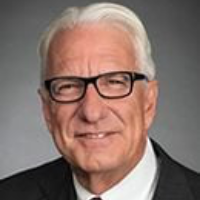
Attorneys as Bankers

I don’t know about you, but I didn’t go to law school to become a banker.[1] However, when you raised your hand to become an attorney, you agreed to abide by a 150-page manual of accounting principles that applies to client trust accounts called the Interest on Lawyers’ Trust Accounts (IOLTA).
This is now enforced by the California State Bar under the Client Trust Account Protection Program (CTAPP). And, by the way, don’t think if you work at a law firm or for a public agency you have no concerns. CTAPP places the responsibility on you, personally, to at least report about the possibility of any money held in trust.
If you are reading this now, I do hope that when you paid your annual dues, you also complied with CTAPP, as required. CTAPP arose out of an ongoing scandal at the State Bar concerning the handling of reported misdeeds by indicted Los Angeles attorney Tom Girardi.
There are allegations of illegal transfers from the trust account of Girardi’s former firm. According to reports of the investigation, Girardi also corrupted State Bar investigators. Regardless of the genesis of the new CTAPP requirements, compliance with an attorney’s obligations on the financial front are critical to maintaining your license to practice law.
The State Bar’s manual for trust accounting is intended to just be a “tool to help every California attorney fulfill their statutory and ethical obligations to clients whose money and other properties they hold in trust.” Some tips from the manual (the manual uses the word “simple” 10 times. Your experience may differ.):
- California’s Rule of Professional Conduct 1.15 is called “Safekeeping Funds and Property of Clients and Other Persons.” The whole point of rule 1.15—and client trust accounting—is to make sure you know exactly how much of the money you are holding for clients belongs to each individual client.
- Whenever you receive money or other property on behalf of a client (e.g. you receive a settlement check in a case you have handled), absent good cause, you must notify the client of that fact no later than 14 days of the receiving the funds or other property.
- You can’t keep any money belonging to you or your law firm (other than money for bank charges) in any of your client trust bank accounts. This is known as commingling. That means that when you are holding client funds that include your fees, you have to take those fees out of the client trust bank account as you earn them.
- When clients ask you how much money you are holding for them or what you have done with the money while you have had it, you must tell them. When the State Bar asks you how much money you’re holding for the client or what you’ve done with it while you’ve had it, you must tell the State Bar.
- Client Ledger.This is a written ledger for each client that details every monetary transaction on behalf of that client or other person. It appears this can be done digitally.
- Reconciliation. You must keep a written record showing that every month you “reconciled” or balanced the account journals you keep for each client trust bank account against the client ledgers you keep for each person and the cancelled checks and bank statements for those accounts.
If you have questions about your obligations, the manual goes into each of these general requirements in depth.
Some other important rules include:
- Rule 1.4 of the Rules of Professional Conduct, which imposes a general duty to communicate with a client. It requires you to inform the client about “significant developments relating to the representation.” Receiving money on behalf of a client is likely to be considered significant.
- Business and Professions Code sections 6211-6313, which includes the law on maintaining the IOLTA account. As an attorney, you are governed both by the Rules of Professional Conduct and the Business and Professions Code that apply to attorneys.
Finally, the State Bar offers a toll-free, confidential Ethics Hotline, which you may call to discuss ethical issues with staff who are specially trained to refer you to relevant authorities. Attorneys may receive assistance by calling 1-800-2-ETHICS or 1-800-238-4427 in California, or 415-538-2150, or by completing the online Ethics Hotline Research Assistance Request Form (https://apps.calbar.ca.gov/forms/EthicsHotline). Members of the San Diego County Bar Association may also contact a similar Ethics Hotline operated by the SDCBA by calling 619-231-0781, Ext. 4145.
[1] In a recently released oral history regarding Barack Obama’s presidency, the New York Times, stated “Mr. Obama would tease scientists and engineers. ‘“I stayed away from you all in school,’” … “I’m a lawyer. I don’t like math. I don’t do math.’”